第29章 THE DARK HORSE(1)
One of the most curious things in Lincoln is the way his confidence in himself came and went.He had none of Douglas's unwavering self-reliance.Before the end,to be sure,he attained a type of self-reliance,higher and more imperturbable.But this was not the fruit of a steadfast unfolding.Rather,he was like a tree with its alternating periods of growth and pause,now richly in leaf,now dormant.
Equally applicable is the other familiar image of the successive waves.
The clue seems to have been,in part at least,a matter of vitality.Just as Douglas emanated vitality--so much so that his aura filled the whole Senate chamber and forced an unwilling response in the gifted but hostile woman who watched him from the gallery--Lincoln,conversely,made no such overpowering impression.His observers,however much they have to say about his humor,his seasons of Shakespearian mirth,never forget their impression that at heart he is sad.His fondness for poetry in the minor key has become a byword,especially the line "Oh,why should the spirit of mortal be proud."It is impossible to discover any law governing the succession of his lapses in self-reliance.But they may be related very plausibly to his sense of failure or at least to his sense of futility.He was one of those intensely sensitive natures to whom the futilities of this world are its most discouraging feature.Whenever such ideas were brought home to him his energy flagged;his vitality,never high,sank.He was prone to turn away from the outward life to lose himself in the inner.All this is part of the phenomena which Herndon perceived more clearly than he comprehended it,which led him to call Lincoln a fatalist.
A humbler but perhaps more accurate explanation is the reminder that he was son to Thomas the unstable.What happened in Lincoln's mind when he returned defeated from Washington,that ghost-like rising of the impulses of old Thomas,recurred more than once thereafter.In fact there is a period well-defined,a span of thirteen years terminating suddenly on a day in 1862,during which the ghost of old Thomas is a thing to be reckoned with in his son's life.It came and went,most of the time fortunately far on the horizon.But now and then it drew near.
Always it was lurking somewhere,waiting to seize upon him in those moments when his vitality sank,when his energies were in the ebb,when his thoughts were possessed by a sense of futility.
The year 1859was one of his ebb tides.In the previous year the rising tide,which had mounted high during his success on the circuit,reached its crest The memory of his failure at Washington was effaced.At Freeport he was a more powerful genius,a more dominant personality,than he had ever been.
Gradually,in the months following,the high wave subsided.
During 1859he gave most of his attention to his practice.
Though political speech-making continued,and though he did not impair his reputation,he did nothing of a remarkable sort.
The one literary fragment of any value is a letter to a Boston committee that had invited him to attend a "festival"in Boston on Jefferson's birthday.He avowed himself a thoroughgoing disciple of Jefferson and pronounced the principles of Jefferson "the definitions and axioms of free society."Without conditions he identified his own cause with the cause of Jefferson,"the man who in the concrete pressure of a struggle for national independence by a single people,had the coolness,forecast and capacity to introduce into a merely revolutionary document,an abstract truth,applicable to all men and all times,and so to embalm it there that today and in all coming days,it shall be a rebuke and a stumbling-block to the very harbingers of reappearing tyranny and oppression."[1]
While the Boston committee were turning their eyes toward this great new phrase-maker of the West,several politicians in Illinois had formed a bold resolve.They would try to make him President.The movement had two sources--the personal loyalty of his devoted friends of the circuit,the shrewdness of the political managers who saw that his duel with Douglas had made him a national figure.As one of them said to him,"Douglas being so widely known,you are getting a national reputation through him."Lincoln replied that he did not lack the ambition but lacked altogether the confidence in the possibility of success.[2]
This was his attitude during most of 1859.The glow,the enthusiasm,of the previous year was gone."I must in candor say that I do not think myself fit for the Presidency,"he wrote to a newspaper editor in April.He used the same words to another correspondent in July.As late as November first,he wrote,"For my single self,I have enlisted for the permanent success of the Republican cause,and for this object I shall labor faithfully in the ranks,unless,as I think not probable,the judgment of the party shall assign me a different position."[3]